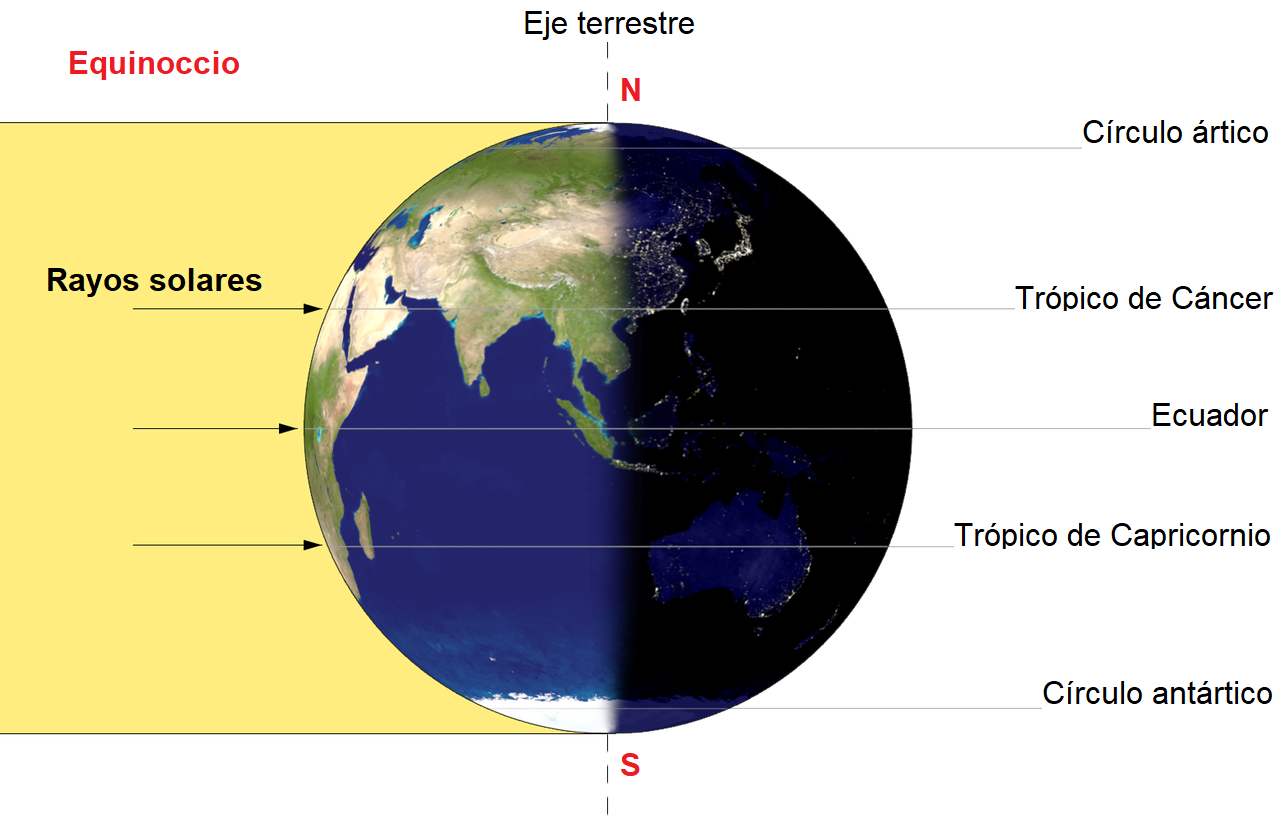Autumn begins on the 22nd, the night quickly gains ground by day, it is a wonderful time to enjoy the sky as it changes in appreciation.
Here we show you 10 astronomical curiosities for the harvest season.
1) Autumn in the Northern Hemisphere (and spring in the South) will begin on Wednesday, September 22 at 9:21 p.m. peninsular time (8:21 p.m. in the Canary Islands).
2) Daylight saving time will end on Sunday, October 31.
On that day, at 3 am (2 am in the Canary Islands) we will have to set the clocks back until 2 am (1 am in the Canary Islands).
The change will make it wake up earlier (at the official time) and that the afternoons seem shorter.
3) The beginning of autumn is the time when the night gains ground more quickly than the day.
The nights get 3 minutes longer, with each passing day.
4) The first full moon of this fall will take place on October 20 in the constellation of Pisces.
This full moon, the first after the equinox, is usually called 'Harvest Moon', since the light of this full moon allowed the harvesting tasks typical of this time of year to be extended to the night.
5) Venus will shine splendidly in the west in the evening twilights.
Jupiter and Saturn will remain visible in the first part of the autumn nights.
As the season progresses, the two giants will move from southeast to southwest and go to bed a little earlier each day.
6) After months without being observable, Mars will appear again, although timidly, with little brightness and low above the horizon, at dawn from November 10.
The elusive Mercury will make an appearance, also at dawn, from October 15 to November 12.
Illumination of the Earth at the equinox
7) The season brings us two eclipses.
The first of these is a partial lunar eclipse that will take place on November 19 and will be visible from parts of Europe, Asia, Australia and America.
From Spain, only the first part of the phenomenon will be visible: as the full Moon sets, at dawn in the west, we will observe a slight twilight on its upper part.
8) The second eclipse of the autumn, much more interesting, is a total solar eclipse that can be enjoyed on December 4 from part of southern Africa, Antarctica and the adjacent oceans, but not from Spain.
9) The most substantial meteor showers in the autumn, the Leonids and the Geminids, will take place in very unfavorable conditions for their observation as the Moon will considerably illuminate the sky background, dimming the brightness of the meteors. Indeed, the Leonids will reach their maximum activity around November 17, just two days before the full moon, while the Geminids will have their maximum on December 13, that is, with the Moon already very high that will reach the full moon on the 19th.
10) The fit of the tropic year (defined by the duration of the Earth's orbit) in our solar calendar (with its years of different lengths, sometimes leaps) means that, each year, the autumnal equinox can happen on four dates different: September 21, 22, 23 or 24.
However, throughout the 21st century it will only start on the 22nd or 23rd (official Spanish time).
The earliest start of the season will be in 2096, while the latest start took place in 2003.
11) At the Earth's poles the day of the equinox is very special.
At the North Pole you go from a period of 6 months by day to a period of 6 months at night.
There, on the 22nd, the Sun will be seen for 12 hours as a half-grazing disk on the horizon that hides so that it will not be seen again until the spring equinox.
12) This fall will last 89 days and 20 hours.
It will end on December 21 with the beginning of winter.
____________________________________________________________________________
Rafael Bachiller is director of the National Astronomical Observatory (National Geographic Institute) and academic of the Royal Academy of Doctors of Spain.
According to the criteria of The Trust Project
Know more
See links of interest
The Palm
Last News
Work calendar
Home THE WORLD TODAY
Master Investigation Journalism
Series
Getafe - Atlético de Madrid, live
Athletic Club - Rayo Vallecano
Levante - Celta de Vigo

